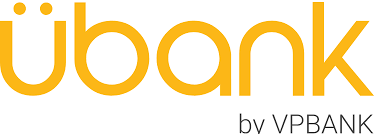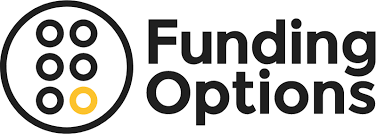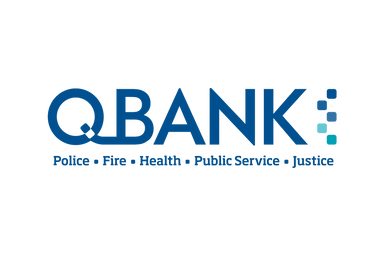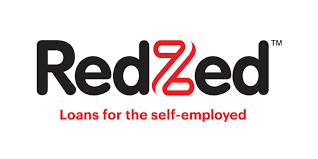Banks in Australia
Australia boasts a diverse assortment of lending institutions to cater to financial requirements.
Banks and Financial Institutions in Australia
Urban Money Oceania has tied-up with all the major banks and financial institutions intending to provide lucrative interest rates and smoothen the lending procedure. We aim to conclude the lending process in a hassle-free manner.
List of Banks in Australia
The following table features a comprehensive list of banks, Financial Institutions, and Credit unions catering to the lending requirements of the customer base in Australia. This list provides a detailed synopsis of the banking products offered by these institutions.
Opening a Bank Account in Australia
Individuals need to familiarise themselves with the intricacies of the Australian Banking system to avail of the services and products offered by these financial institutions. An expatriate needs to establish a bank account in Australia before the move to access their funds immediately. A customer is required to implement the following steps to conclude the process:
- Predominantly, every major bank in Australia allows applicants to establish their bank account online through an online form. The applicant is required to produce their passport details during the application process.
- The applicant will be notified with their account details after the Bank has processed their application. Post which the applicant can facilitate the transfer.
- The applicant is required to visit the branch of the Bank physically, along with their passport, after the relocation, where the applicant would be able to access the funds through a debit card issued by the bank.
If the individual wants to facilitate the application process of opening a bank account after relocating to Australia, they shall conclude the procedure within six weeks of their arrival date. The concerned individual must produce their passport to the bank authorities, and they will issue them with a debit card linked to their account.
Types of Bank Accounts
The banks in Australia offer multiple kinds of Bank accounts to cater to the varying requirements of their customer base.
- Transaction Account: this is beneficial for account holders to facilitate their day-to-day transactions.
- High-Interest Savings Account is a lucrative investment cum saving product that provides substantial returns to the depositors.
- Cheque Accounts are transaction accounts that provide additional facilities to the account holders, such as chequebooks.
Factors to Consider while Selecting a Bank in Australia
The applicant must evaluate the following factors before selecting the Bank:
- Application Fees
- Does the Bank provide personalised banking services to the account holders?
- Eligibility for a student account
- The minimum balance required to establish and sustain the bank account.
- Is the bank compatible with the foreign exchange provider of the applicant?
- The network and visibility of branches of the bank across the country.
- The number of ATM Machines in the country.
- Do the ATMs of the bank entertain multiple languages?
Australian Currency
The official currency of Australia is the Australian Dollar (AUD). The Reserve Bank of Australia issues currency notes of $5, $20, $50 and $100. The bank also issues gold-coloured coins for $1 and $2. The currency also entails silver-coloured coins of 5 cents, 10 cents, 20 cents and 50 cents.
Operational Hours of Banks in Australia
Banks in Australia are generally open from 9:30 AM to 4:00 pm from Monday to Thursday. And 9:30 am to 5:00 pm on Fridays. However, these timings might vary from branch to branch as some are operational even on weekends. The banks allow account holders to facilitate transactions and avail services such as money transfers, account opening, bank cheques, currency exchange, and other services. The bank also offers ATMs and internet banking options where account holders can facilitate transactions at any time of the day.
Automatic Teller Machines (ATMs)
The ATMs or Automatic Teller machines are present throughout Australia, where one can withdraw cash, review their account balances and make deposits. It is to be noted that the bank levies fees on the withdrawals at ATMs in case another bank issues the card. Transaction fees are also levied on employing international cards.
Telephone and Internet Banking in Australia
Telephone and internet banking services enable the account holders to manage their accounts, transact funds between accounts and facilitate payments without mentioning the bank branches. The account holder must reach out to their respective bank to avail of the telephone and netbanking services.
EFTPOS and other Payment Methods
The account holders can select from the various payment methods available:
EFTPOS (Linked to Transaction Account)
EFTPOS is an avenue that allows account holders to make a payment for services through a debit card linked to the bank account. The account holder can avail of this facility in several stores and restaurants. An individual can withdraw cash via EFTPOS.
Credit Cards (Linked to Credit Accounts)
Credit cards allow accountholders to facilitate transactions through their credit cards. The cardholder can exceed their credit limit and pay back the money later with interest. Credit is accepted as a mode of payment in most stores, restaurants and websites.
Credit Debit Card (Linked to Credit Debit Account)
Cards issued by Visa and MasterCard enable users to utilise the funds from their accounts to make payments via credit systems and EFTPOS. They perform a function similar to credit cards except for the absence of the credit line.
Cheques (Linked to Transaction Account)
Account holders can also facilitate transactions from the chequebook issued by the bank along with the debit card through their transaction account. Generally, cheques are suitable for making larger payments. It is to be noted that the account holder can conclude transactions from cheques even in the absence of a chequebook. They just require to visit the Bank and ask for a cheque.
Frequently Asked Questions
Which Banks Offer Reverse Mortgages In Australia?
Reverse Mortgages are offered by Household Capital, heartland and other small lenders.
How Many Banks are in Australia?
Various financial Institutions established in Australia cater to the investment and financial requirements of the population in Australia.
What Are The Major Banks In Australia?
The four major banks in Australia are the Commonwealth Bank of Australia, Australia and New Zealand Banking Group, National Australia Bank and Westpac Banking Corporation.
How To Open A Bank Account In Australia For Foreigners?
Account holders can utilise various online and offline channels to establish a Bank Account in Australia.
What Documents Do I Need To Open A Bank Account In Australia?
The applicant is required to produce the following documents:
- Primary ID with Photo ID (Passport and Driver’s License)
- Primary ID without Photo ID (Birth Certificate or Government Benefit Card)























































































































